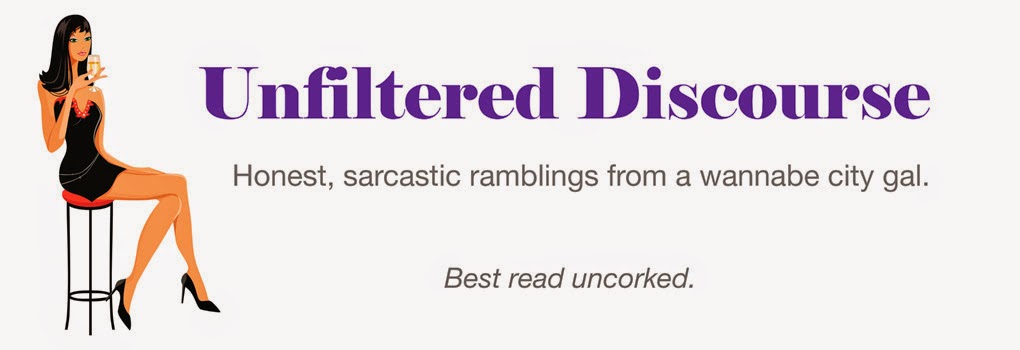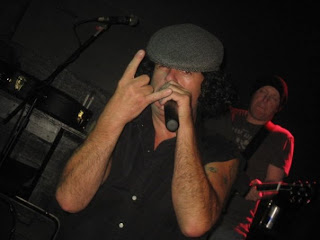“Your father will never wake up.”
On a hot July afternoon in a cramped family meeting room at
Sunnybrook Health Sciences Centre, those six words changed my life forever.
Only five days before my Dad, Malcolm Higgins, had been in a
single-vehicle car accident. He sustained a critical brain injury and was in a
coma. At first, my siblings and I were hopeful. Over the course of the next few
days, we quickly became familiar with diffuse axonal brain injuries, EEGs, and
how the Glasgow Coma Scale worked.
When the doctor delivered the grave prognosis, I didn’t
believe him. Surely, my Dad would recover. He was strong, he was healthy – he
was just 49 years old.
By day, he was a paralegal and professor at Everest College.
He was well-respected, passionate and intelligent.
By night he was a rock star, singing in one of the best
AC/DC tribute bands in the country. He was incredibly talented musically and
tried as hard as he could to pass it onto my three younger siblings and I.
As youngsters, instead of reading bedtime stories, he sang
to us. The four of us knew the words to AC/DC, Steve Miller Band and Guns and
Roses before we could recite the alphabet.
He was full of life, energy, and ambition and would never
have wanted to live hooked up to machines indefinitely, completely
incapacitated. We made the decision to withdraw life support, but I never
imagined at 24 years old, I would be the one signing the papers to do it.
Shortly after we received the news, my siblings, my dad’s
father, sister and I were approached by an organ and tissue donation
coordinator who talked about the possibility of donating Dad’s organs.
The choice to donate Dad’s organs was an easy one – he had
always discussed it with us and had registered to become an organ donor should
the opportunity present itself.
The night we let my Dad go, three of his four kids were by
his bedside, along with his older sister. We brought in our iPod, played AC/DC
and waited. In order for him to be eligible for donation, he had to pass away
within two hours of being removed from the ventilator.
The wait was agonizing and as my Dad slowly slipped away
before my eyes, I thought about the irony of the situation: he was in one of
the best hospitals in the country and the very people who we had hoped would
save him were standing around waiting for him to die. It just didn’t make
sense.
Thirty-three minutes after we began the process, my Dad
passed away. His final heartbeat was perfectly in tune to the last note of
Thunderstruck, which was always the finale at his shows.
On July 14, 2010, seven days after his initial accident, I made
the most difficult phone call of my life and told my grandfather his only son had
taken his last breath. It gave me a small bit of comfort knowing that
simultaneously, three other families were receiving the best news of theirs.
I knew donating his organs was the right decision and it
meant we were honouring his wishes. I knew lives were going to be saved because
of him. What I didn’t appreciate was the profound the impact his donation was
going to have on my own.
A few weeks after my Dad passed, I read an article in the
Toronto Star about organ donation. I was amazed the impact this gift had on the
recipient that I reached out to the reporter to thank her for the piece.
Two months later, she emailed and asked if my family would
like to be featured to talk about the donor side. I couldn’t let the
opportunity pass.
Together with my sister, we told my Dad’s story: how he told
us his wishes in advance; that he carried around a blank donor card in case he
met someone who wanted to consent on the spot; and about the young child with
leukemia he helped save by donating bone marrow so many years prior.
Five months to the day Dad passed away – December 14 – I
received the most incredible Christmas present: letters from Dad’s double lung
recipient and two of his family members. Trillium Gift of Life
Network facilitates anonymous contact between recipients and donor
families. Neither side is obligated to write a letter or reply to anything
they’ve received but it gives an opportunity to reach out if you wish.
Here was his letter to us:
Dear Donor
Family,
As I begin to
write this letter of thankfulness, I have mixed emotions. I am so very sorry
for the loss of your loved one who has so generously donated their lungs for
transplantation.
I am so
grateful to be the recipient of your loved ones generous donation. My quality
of life has improved dramatically, as has my wife’s – my caregiver.
Prior to my
operation, I had been on oxygen since 2003. Almost immediately after my
operation, I did not require oxygen for life support.
I am so
grateful to you, the Donor Family, for donating this precious Gift of Life to
me.
Now I will be
able to continue my life in good health with my wife, family and friends.
From a
Grateful Recipient
For a long time, I was angry my Dad had been taken from me.
I was frustrated because I felt he had so much life left in him. I was angry at
him, at the accident, at fate, at everything surrounding his death.
Getting these letters really touched me and proved to me
what I knew all along: my Dad did have
a lot of life left in him. His lungs give every single breath to a man,
allowing him to hug his wife, kiss his daughters and walk up the stairs without
gasping for breath. His kidneys saved two other men from the rigorous routine
of dialysis and his eyes have given sight to two others.
After receiving the letters, I knew I had to become involved
and continue telling his story.
I began volunteering with Trillium Gift of Life Network. The
first year he was gone, his story
was featured in several newspapers, placed second at a film
festival in California, and was shared at more than 10 different speaking
presentations.
We also finally gathered the courage to write back to his
double-lung recipient and within two weeks had another set of letters from him.
This time, he shared he was visiting his family for the first time in Alberta
in 10 years and that he was finally able to sing like he used to. He and my Dad
had more in common than we realized.
A year-and-a-half after my father’s death, I was invited by
a fellow volunteer, who was a recipient, to Toronto General’s annual lung
transplant party. Merv thought it would be appropriate for me to learn about another
piece of the donation puzzle – the wait list.
There were about 100 people at the party – recipients,
family members, those waiting along with staff and physicians. Merv was walking
my sister and I around the room, introducing us to nearly everyone. Just when I
thought we were finished, he introduced us to a man named Richard. He was a
short, older gentleman and looked to be about 70 years old.
He indicated he was a recipient – his transplant was July 2010
– and had written to his donor family. My sister and I were touched and thanked
him immensely. After all, the reason I became involved was because the
recipient had the courage to reach out to us a year before.
“Do you know much about your recipient, because I know a lot
about my donor”, he said to us. “I know he was a former police officer, he had
four kids and he sang in an AC/DC band.”
For a moment, I thought I might pass out. My sister started
crying as Richard slowly connected the dots. His chin began to quiver and his
eyes filled with tears.
I managed to find my voice and said, “you have my Dad’s
lungs.”
 |
| My sister and I with Richard. |
Tears running down his face, he grabbed mine and my sister’s
hands and pulled us through the crowded room to where his wife was standing.
“Joan, meet our donor daughters,” he said. She, too,
couldn’t believe it.
Through our tears and hugs, we quoted the letters back and forth
to make sure Richard really was my Dad’s recipient. After a couple of minutes,
there wasn’t a doubt in our minds it was him. As it turns out, he and his wife
live 20 minutes from my house. We’ve stayed in close contact and even had the opportunity to meet his two daughters,
who are my father’s age.
Since meeting Richard in December 2011, I’ve continued with
my volunteer work. I wrote an article for the United Kingdom's Live Life Then Give Life organization, who featured my Dad, a Scotland native, on their website. I started a group called the York
Region Gift of Life Association to help raise the low registration rates in
our community. In less than a year, we’ve attended or participated in more than
50 events and presentations and recruited a force of 30 amazing volunteers. We
also spearheaded the largest organized registration drive in Ontario’s history,
supported from all three levels of government. I’m humbled to be a very small
part of what this inspirational group accomplishes – they truly are incredible.
Dad always said his four kids would be easily able to surpass
his achievements in life and that we would amount to greater things than he
ever could. I beg to differ.
There is no greater gift you can give someone than life
itself, and he’s done that three-fold.
The man whose selfless decision saved three lives and gave
sight to two others; the man whose selfless decision has been featured in three
countries and dozens of articles; and he man whose selfless decision motivated
his four children and countless others was my father and for that, I couldn’t
be more proud.
April 22 to 26 National Organ and Tissue Donation Awareness Week. Right now,
there are nearly 1,500 people waiting for a life-saving transplant in Ontario.
Please, please register your consent at beadonor.ca
and speak to your family about your wishes.



What a brave and inspiring story! I've been a registered organ donor for 10+ years, and you've reminded me why it's so important to register.
ReplyDeleteYour Dad would be, as usual, bursting with pride over this. Great blog!
ReplyDelete